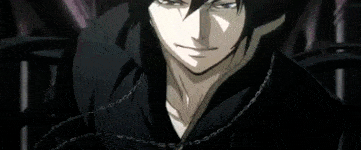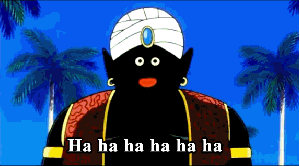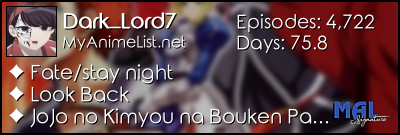Workers From the New World, Unite: A Queerat Communist Revolution
"The history of all hitherto existing society is the history of class struggles." No other show I've seen embodies this line quite so well as Shinsekai Yori. Although many posters readily identify the revolutionary aspects of the show in the queerat storyline, few read specifically anti-capitalist themes into it. But I think that understanding the queerat revolution as a communist revolution is the most coherent way to understand how the series' A Plot (related to Saki's coming of age) and B Plot (related to queerat political development) fit together.
I won't spend much time discussing the specifics of Squealer's revolution. That topic has already been repeatedly discussed. Suffice it to say, Squealer did nothing wrong. That said, although Squealer's revolution would make sense against any form of systemic oppression, I think it's worth elaborating why an anti-capitalist reading is especially fruitful and helps unite the two storylines.
Cantus is capital and the humans who wield it are the capitalist elite. Indeed, this epoch "has simplified class antagonisms. Society as a whole is more and more splitting up into two great hostile camps, into two great classes directly facing each other"--those with PK, and those without. Cantus is used to kill thousands of queerats on a whim. When Squealer describes life in one queerat tribe conquered by another, he in fact describes queerat life under capitalism: "We would work as slaves until we die. We would be treated like scum while we live, and our corpses would be left in the hills to fertilize the earth."
As if the human's immediate exploitation of the queerats wasn't enough, the holy barrier redirects leaked Cantus outside of the community. In other words, suffering that is the byproduct of capitalism--its various unintentional, negative externalities--is exported and forced upon the queerats, so that the humans don't have to deal with it. Like global warming, although leaked Cantus "won't ravage the world overnight," it might over time, but as long as humans aren't directly or immediately affected by it, they don't care. Indeed, this is what allows them to maintain their idyllic life. It is only if the effects of leaked Cantus amass in the community, i.e. if humans are forced to see the consequences of their actions, that something might change; the holy barriers (and propaganda) prevent that from happening.
This capitalism is a global force; it knows no boundaries or allegiances to any but itself. When the queerats go to war with one another, they must first apply to do so with their capitalist overlords, who are not aligned with any particular state or faction, only their own interests. More than that, global capitalism is concerned only with reproducing its own structure, not in protecting the power of any specific family or individual. We can see this in the operation of the villages themselves. Children are killed or protected solely based on whether they meet the criteria necessary to maintain the system, regardless of family relations. So, on the one hand, although Saki's father is town mayor and her mother head librarian, they cannot use their positions of power or influence to prevent the killing of Saki's sister. On the other, Saki is identified as the future head of the Ethics Committee specifically because her personality is so stable--she remains firmly within the grips of capitalist ideology no matter how traumatic the events around her. We find in Saki's Cantus specialization (fixing a broken vase), then, the role she will play in perpetuating capitalist power. Like Tomiko, she is practicing a method that will preserve her structure for hundreds of years. She also takes a stable form that is susceptible to breakage (capitalism via internal rupture) and reconstructs it over and over again.
To be clear, "the villages are twisted" as well. Its citizens are regularly subjected to hypnosis, propaganda, and memory manipulation, speak nothing of the children regularly killed and the countless queerats enslaved or crushed like insects. But this only highlights the necessity of Squealer's revolution. Humans would rather preserve this cruel system than treat the queerats as equals. Especially revealing is that human children aren't allowed to interact with queerats, because it's unknown how queerats will react to a human without Cantus. In other words, (PK) humans have never interacted with someone they did not have power over, and can only imagine a violent resolution to such an encounter--better to kill queerats indiscriminately than risk anything to find out whether peace is possible.
In response, one might argue that the PK humans are merely doing what is necessary for the species to survive (like the blowdogs). This would be mistaken. First, nothing suggests that PK humans are a different species from non-PK humans; transforming non-PK humans into queerats merely ensured that power survived, not the human species. Nor can it really be about individual survival, since as discussed above, the village system doesn't care about that either. Finally, even if all the horrors of the village were necessary to keep PK under control, still none of that would necessitate how humans mistreat the queerats. (The show doesn't address whether the ancient scientists could have removed PK from the human genome entirely, but even if they could, this last reason suggests PK humans wouldn't have accepted such a solution anyway.)
For all these reasons, when Satoru tells a captured revolutionary that Squealer "doesn't value the lives of you soldiers at all," his words ring hollow. No one values the lives of queerats less than humans. In such a world, "the lives of individuals are meaningless before the greater cause--the liberation of our entire species from your tyranny." Indeed, the final battle with the Messiah reveals the fundamental ethical position of the queerats and humans: Despite the aggression inhibition, Saki is happy to sacrifice a queerat (instead of Satoru) to kill another human, if that other human threatens the system. Conversely, the Messiah cannot forgive herself even the accident of killing another queerat, even if that queerat is a class traitor, and even if she was tricked into doing so.
In the end, capitalism wins. Although Saki hopes that the society her child will grow up in will be much better, there's nothing to indicate that will be the case. Humans have learned nothing: they still breed queerats (oppress others), and they still breed tainted cats (oppress themselves). The final words of the show read: "The power of imagination is what changes everything." Those words aren't meant for Saki--of all the characters in the show, she seems the least capable of imagining something new. They're meant for Squealer, even Kiroumaru, and ultimately for us.
Other random thoughts:
- It's no coincidence that the queerat revolution happens after they finally establish factories (i.e., industrialize).
- Emotional excess among humans is prohibited unless it is channelled into (non-reproductive) sexual desire.
- Squealer looks ugly because the story is told from the perspective of the humans. This is also the reason the class traitor Kiroumaru looks so noble.
- Capitalism is not a meritocracy. Whether a human thrives depends entirely on whether they are born with PK. Even if they are, they may still be killed if they do not meet the village's cookie-cutter social requirements. Saki is chosen to lead the Ethics Committee not because of any particular skill or talent (much less cultivated skill or talent), but simply because of her strong predisposition to support the status quo.
- The villages must kill non-PK human children because the aggression inhibition kills by turning the psychic mind against itself. Thus, non-PK humans could potentially kill PK humans without killing themselves. What power really fears is the loss of power.
- The Messiah's face tattoos are reminiscent of the face tattoos of the revolutionary in the opening of Episode 3. Despite Squealer's pessimism, maybe this means there's hope for another revolution in the future.
TL;DR: To better understand Shinsekai Yori, watch the Manifestoon. |




